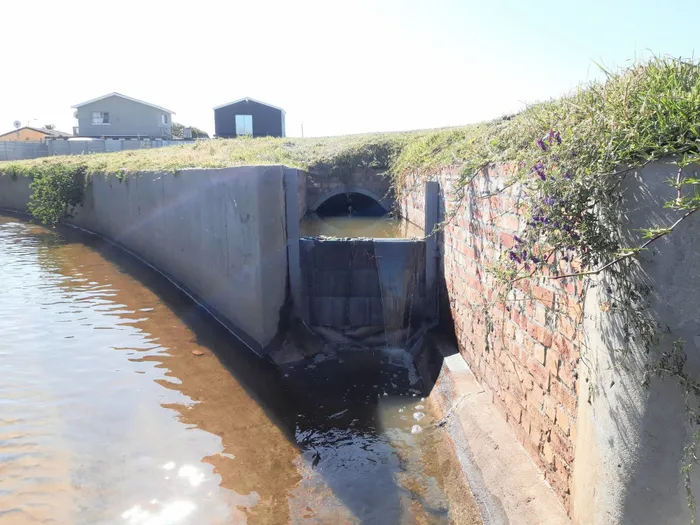Zandvlei riddled with E coli

The pipeline that is spilling sewage into the Steenberg canal is about 350 metres from where the canalstarts at the entrance to Marina Da Gama. It is not meant to carry sewage, only stormwater.
Water-quality testing – done privately during the 11th Peninsula Paddle – has found off-the-chart E coli readings in Zandvlei.
Dr Kevin Winter, of the Future Water Institute, says Zandvlei should be closed for all recreational activity until these issues are addressed, and that the E coli readings alone are a risk to human health.
The Echo approached the City of Cape Town on Tuesday morning for comment about the water-quality findings, but it did not respond to our questions by the time this edition went to print.
The water samples were collected by paddlers on World River’s Day, Sunday September 27.
The paddlers were equipped with cameras and recording equipment. They created a short documentary on the state of the waterways from Muizenberg to Milnerton, and, along the route, they took water samples to test for bacteria, nutrients and heavy metals and compare these results with water samples from previous years.
Watch the documentary here.
The data collected by the paddlers was processed for Dr Winter by AL Abbotts laboratory.
He said the interpretation was clear: anything over 2419 counts per colony forming unit (cfu) is off the charts.
The results show that out of a total of 12 samples, nine came back with E coli counts of over 2419 cfu.
Gregory Higgins, of the Friends of Zandvlei, said that laboratories stopped counting at 2419 as it was already off the charts.
Dr Winter said four (local to Zandvlei) samples were taken on the day of the paddle, the lowest being 866 cfu which was taken near the Zandvlei estuary.
An E coli sample in the middle of Zandvlei, opposite the yacht club, was over 1700 cfu. One near and one in the Steenberg canal, particularly at the point in which raw sewage enters the canal, had E coli over 2419 cfu. According to the government’s water-quality guidelines for recreational use a count above 500 cfu is “unacceptable” and greatly raises the risk of illnesses, especially gastrointestinal ones.
According to Professor Leslie Petrik, from the department of chemistry at the University of the Western Cape,the presence of E coli is an indication that other pathogens, such as staphylococcus (staph), a group of bacteria that can cause a range of infections, are also present.
She says the real impact of poor water quality on marine organisms is still barely understood.
"A recent report said we are exterminating insects at about 2.5 % a year. If that is happening on land, it is happening in the ocean.”
Dr Winter said the Peninsula Paddle had started with four people who wanted to see if it was possible to traverse the Cape Peninsula from Muizenberg to Woodstock beaches in kayaks.
More importantly, the intention was to challenge the City of Cape Town and its citizens about the state of the city’s waterways, which have become nothing more than convenient conduits for disposing solid waste, plastics, material and much more, all of which could potentially find its way into canals, lakes and eventually the sea.
Dr Winter said he hoped the City, together with concerned citizens, could sort out the problem.
David Muller, chairman of The Zandvlei Trust, said Marina residents had noticed disturbing trends in the past two years.
“We have watched the swallows disappear. We have watched the coots leave our waterways. The dabchicks are gone. We no longer see the schools of small fish around the edges of Marina da Gama waterways.The frogs no longer make their way up the banks into our pools. The waterweed, which is the life-support system of the vlei, is pretty much gone. The spiders are gone.”
Mr Higgens said some of the larger species had left the marina, and that was proof that the system had already collapsed.
“I am hoping if enough people come forward and make a stand that we may still be able to save out beautiful vlei,” he said
Mr Muller said the trust and Friends groups were appealing to anybody who could help in any way to work with them.
“If we all do a little we can achieve a lot,” he said.
Contact Mr Muller with suggestions on email merryscholar13@gmail.com